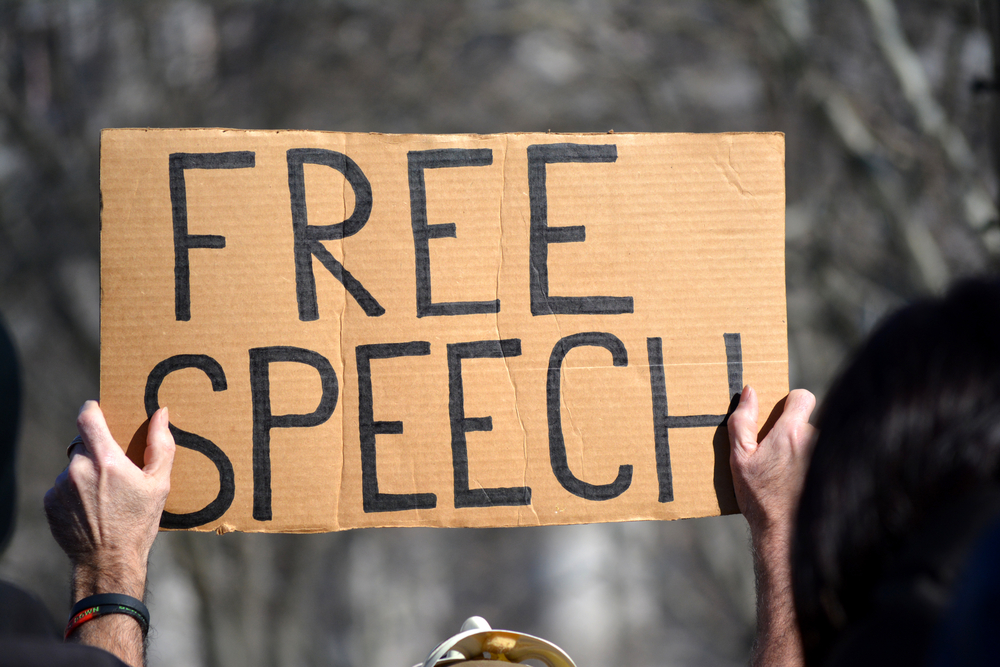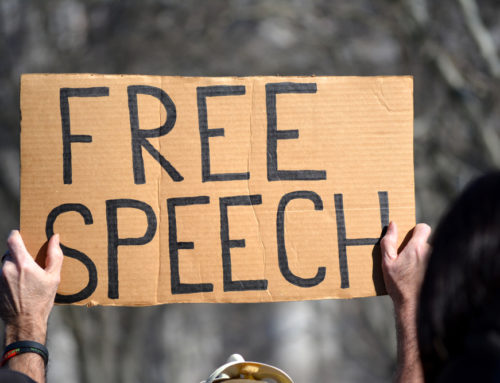
In previous blogs, we have looked at what might be considered a shocking suggestion: let’s re-evaluate what free speech really means. Here’s two good reasons backing that recommendation.
If social media steps forward to police content on the basis of veracity, the area most likely to be attacked first is misinformation about the current pandemic. There’s now evidence that such misinformation, disseminated by news outlets, is putting people at risk for their lives and health.
As reported in the Washington Post on June 25, 2020, three studies examining the role of conservative media like Fox News and social media outlets in fostering misinformation and conspiracy theories found that such inaccurate reporting results in people refusing to take adequate precautions, or delaying taking precautions, allowing the virus to spread. Those relying on conservative sources were more likely to believe in conspiracy theories, in unfounded treatments, and in claims that the situation really wasn’t’ that serious, according to a survey conducted by the Annenberg Public Policy Center and the University of Illinois at Urbana-Champaign.
A paper from the National Bureau of Economic Research in May found that an increase in Fox News viewership reduced that area’s residents’ likelihood of staying home by about 1.3 percentage point. Another paper, written by economists at the University of Chicago, found that viewers of Fox TV talk show hosts most disparaging of the need for precautions delayed changing pandemic-related behaviors, as compared to viewers who watched shows that were more accurate about the dangers broadcast on the same network. This difference in behavior correlates to a 32 percent increase in COVID cases and two weeks later, an estimated 23 percent increase in COVID-19 deaths.
These findings are clear evidence that inaccurate information causes behavior that leads to more infections and more fatalities. Unfortunately, these deaths are not correlated with the individuals delaying their behavior; the fatal infections could affect anyone.
Defending the spread of inaccurate information in this case is hard to maintain when human lives are at stake. And not the individuals who are influenced by the media, but anyone with whom they come in contact with is endangered.
Compounding the dangers is the reality that fake news and false rumors reach more people, penetrate deeper in the social network and spread much faster than accurate stories, according to The Atlantic. As more and more people read and discuss it, it becomes more believable to them.
News media and social media should not have the right, under free speech, to spread information that threatens the lives of its readers. Subjecting news sources to fact-checking is the first step in accountability. Research by the Poynter Institute demonstrates that fact-checking influences public officials to be more honest simply because they know they are being checked. Even people with fixed options are likely to change their mind when presented with contradictory facts, even when such facts challenge their partisan and ideological commitments.
The distinction here is making the distinction between fact and opinion. Even when sharing opinion, news commentators should – in the opinion of the author – be expected to back up these opinions with facts.
If you’re in healthcare, insurance, technology or other professional services industries, and need help with a PR, marketing or social media campaign, contact Scott Public Relations.
Download our e-book, “The C-Suite Asks, We Answer: The Top 6 Questions About Healthcare PR.”

Learn more about healthcare PR, insurance PR, and technology PR in Scott PR’s Einsight blog, and follow Scott Public Relations on LinkedIn, Twitter, and Facebook
Sign up to receive our monthly advice on healthcare, insurance and technology PR: Scott Public Relations.





Leave A Comment